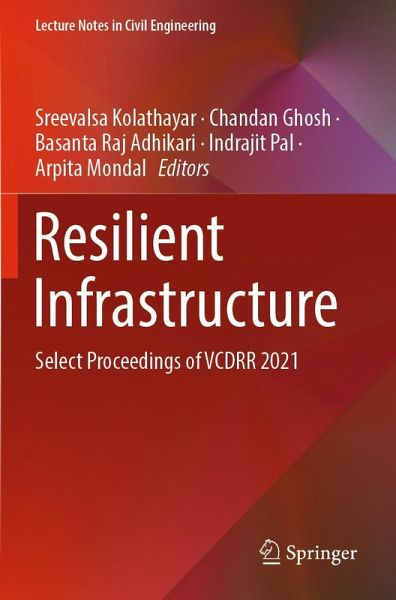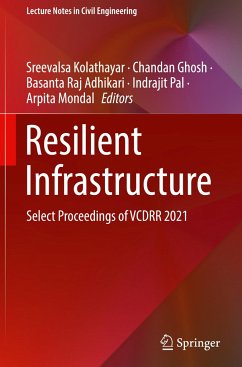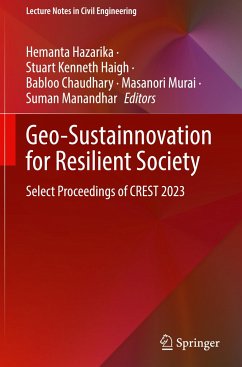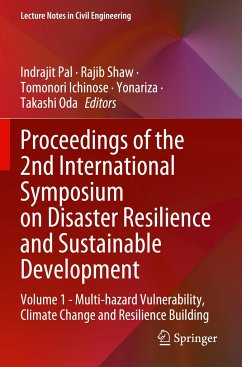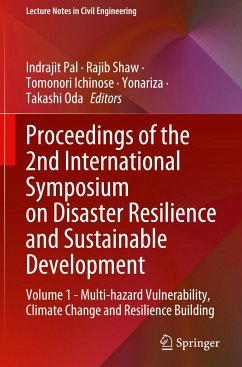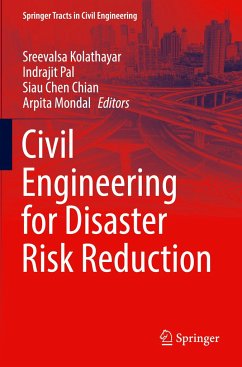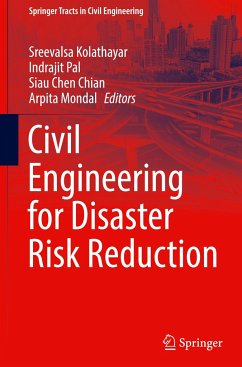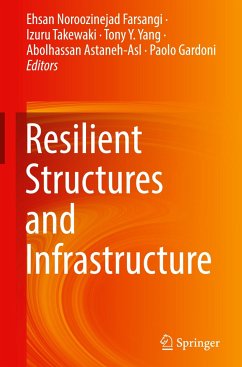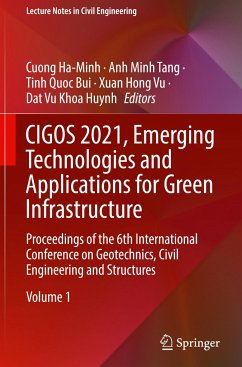Dr. Sreevalsa Kolathayar pursued his M.Tech. from Indian Institute of Technology (IIT) Kanpur, Ph.D. from Indian Institute of Science (IISc) and served as International Research Staff at UPC BarcelonaTech Spain. He is presently Assistant Professor in the Department of Civil Engineering, National Institute of Technology (NIT), Karnataka. Dr. Kolathayar has authored six books and over 80 research articles. He is Associate Editor of two International Journals. His broad research areas are geotechnical earthquake engineering, geosynthetics & geonaturals, landslide, disaster risk reduction and water geotechnics. He is currently the Secretary of the Indian chapter of International Association for Coastal Reservoir Research (IACRR), and Executive Committee Member of Indian Society of Earthquake Technology. In 2017, The New Indian Express honored Dr. Kolathayar with 40 under 40 - South India's Most Inspiring Young Teachers Award. He is the recipient of ISET DK Paul Research Award from Indian Society of Earthquake Technology, IIT Roorkee. He received "IEI Young Engineers Award" by The Institution of Engineers (India), in recognition of his contributions in the field of Civil Engineering. He was recently featured in Geostrata Magazine by American Society of Civil Engineers (ASCE). Dr Sreevalsa is the Organizing Chair of the Virtual Conference on Disaster Risk Reduction (VCDRR 2021). Prof. Chandan Ghosh has devoted more than 30 years of his career in UG & PG teaching, research guidance, development of teaching tools & training modules for engineers, architects, and town planners. He has earned professional zeal in promoting Disaster Mitigation Technologies, including seismic base isolation, dampers, lightweight materials, etc. Besides developing some of the IEC materials such as "Snake and ladder game" for earthquake, flood, road safety, cyclone, DM plan for family, Prof. Ghosh has been deeply involvedin conducting workshops/seminars on retrofitting, earthquake-induced damages, and landslides mitigation; taking pilot site-specific technical/experimental studies; developing/moderating of training modules; online training programs and curriculum for the self-study certificate program. He is always available for the community services and awareness campaign through experimental as well as field demonstration, social media, and video documentaries. Prof. Ghosh is a prolific motivator in varied sustainable development activities, including bio-engineering measures for landslides/erosion controls, lake water cleaning by natural means, and urban flood mitigations. As a recognition of his seminal contributions, Prof. Ghosh received Prof. Leonard prize for the best doctoral thesis-1993, CIDC-Vishwakarma Awards-2013, IGS-Shri H.C. Verma Golden Jubilee Award-2013, and Lifetime achievement Award-2019 by IGS-Delhi Chapter. Dr. BasantaRaj Adhikari is a geo-hazard expert and graduated from the University of Vienna, Austria. He is an assistant professor in the Department of Civil Engineering, Pulchowk Campus, Institute of Engineering, Tribhuvan University, Nepal. His main research focuses on tectonics of the Himalayas, climate change, hill-slope movement and human interaction, Himalayan sediment flux generation, community based disaster risk reduction. He is the author of more than 40 scientific research papers and book chapters and received various recognitions for his work in the field of earth science i.e Young Scientist (Integrated Research on Disaster Risk) and "young affiliates" (The World Academy of Sciences). He has been transferring his scientific knowledge for disaster risk reduction at community level and has developed community based low-tech and low-cost landslide monitoring and early warning systems for sustainable livelihood in the Himalaya. Dr. Indrajit Pal presently working as Assistant Professor and Chair at Disaster Preparedness, Mitigation, and Management program at the Asian Institute of Technology, Thailand. Prior to joining AIT, Dr. Pal served as a faculty member at Centre for Disaster Management at Lal Bahadur Shastri National Academy of Administration, Mussoorie, India (Premier National Institute for training Indian Administrative Services Officers). Dr. Pal has done extensive work on capacity development of decision-makers, risk assessment and disaster risk governance. Dr. Pal has written 6 books and more than 55 articles in international and national peer-reviewed journals apart from supervising masters and doctoral research. Dr. Pal has about 18 years of experience in research and capacity development on Disaster Risk Management and Governance and Disaster Risk Science and Education. Dr Arpita Mondal works as an Assistant Professor in the Department of Civil Engineering at the Indian Institute of Technology (IIT) Bombay. She is also an associate faculty member in the Interdisciplinary Program in Climate Studies at IIT Bombay. Arpita's research focuses on hydroclimatic extremes - how they can be characterized, what causes them, and how they are likely to evolve with climate change. She uses a combination of statistical analysis, physical understanding and computer model simulations. Arpita serves as an Associate Editor of the Springer journal Regional Environmental Change. She received the Early Career Research Award from the Science and Education Research Board (SERB), and the INSPIRE Faculty Award, both funded by the Department of Science and Technology, Government of India. She also received the Asian University Alliance (AUA) Scholars' Award. Arpita completed her PhD at the Indian Institute of Science (IISc), Bangalore, MTech at IIT Bombay and Bachelors in Civil Engineering at Jadavpur University, Kolkata. As a PhD student, Arpita had received the Endeavour Research Fellowship (Government of Australia), Fulbright-Nehru Research Fellowship (USIEF), and the Berkner Travel Grant of the American Geophysical Union (AGU). Arpita scored the first rank in the university in both her Bachelors and Masters.
